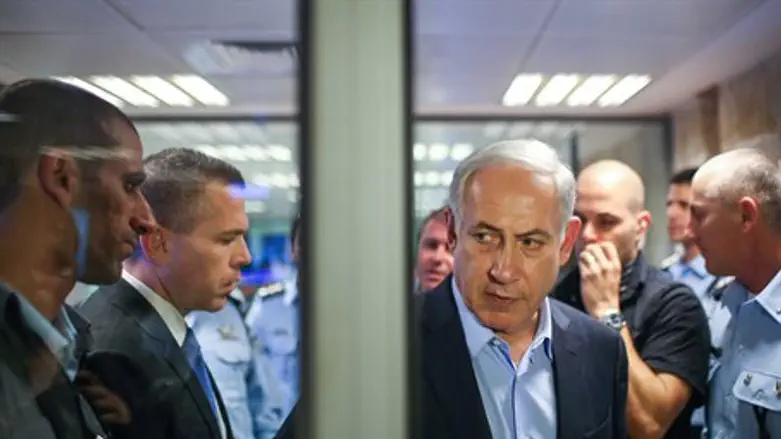
Prime Minister Binyamin Netanyahu has barred all ministers and MKs from visiting the Temple Mount, according to a report Wednesday evening.
The decision will be in effect until further notice, a source in the Prime Minister's Office confirmed to Arutz Sheva, and comes as Israel seeks to calm tensions with Jordan over the holy site, which is administered by the Jordanian Waqf under the terms of the peace treaty between the two countries.
Netanyahu issued the new rule before his speech to the UN last week, and but has not yet communicated it directly to cabinet ministers, who will be personally informed of the directive very soon.
However, despite reports in Haaretz that it will apply to Jewish and Arab MKs alike - the latter of whom have often played a direct role in Islamist harassment of Jewish visitors to the site - the source told Arutz Sheva that Arab MKs would be allowed up, while only their Jewish counterparts would be banned.
While Netanyahu can prevent cabinet ministers such as Uri Ariel (Jewish Home) - a frequent visitor to Judaism's holiest site - from visiting simply by threatening to fire them, he does not exercise similar control over MKs, and has therefore ordered police to physically prevent their entry.
The Temple Mount is Judaism's holiest site, but in response to Muslim threats of violence Jews are banned from conducting any form of worship at the site, which also houses the Al Aqsa Mosque complex.
Muslim extremists have escalated their attempts to prevent even limited Jewish visits to the holy site, harassing Jewish visitors and attacking police.
Clashes on the Mount escalated over the Rosh Hashana holiday, when Islamist rioters barricaded themselves inside the mosque and hurled projectiles at police, who responded by entering the mosque and quelling the violence.
That prompted angry threats from the Jordanians, who threatened to withdraw their ambassador from Tel Aviv.
Netanyahu's moves are a bid to calm those tensions, but will be seen by right-wing critics as yet another capitulation to Arab demands.